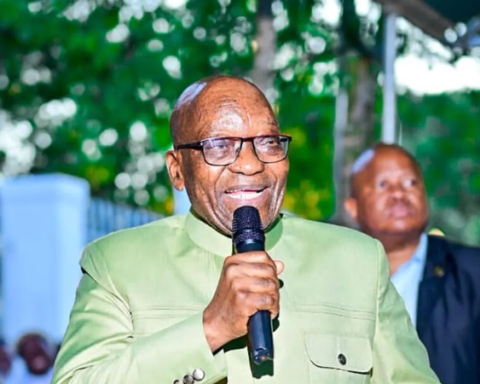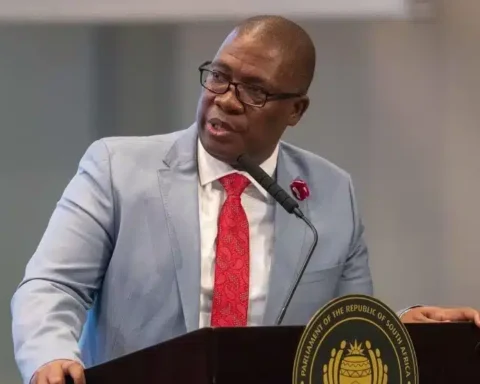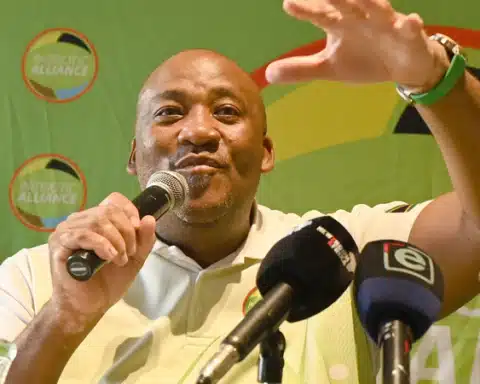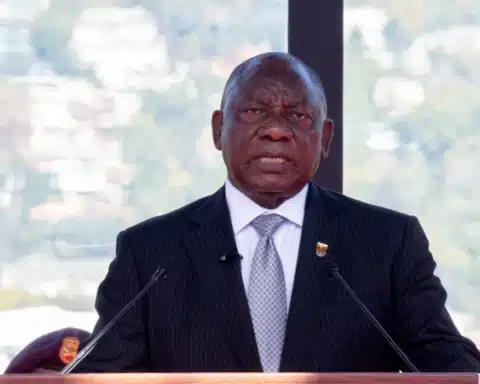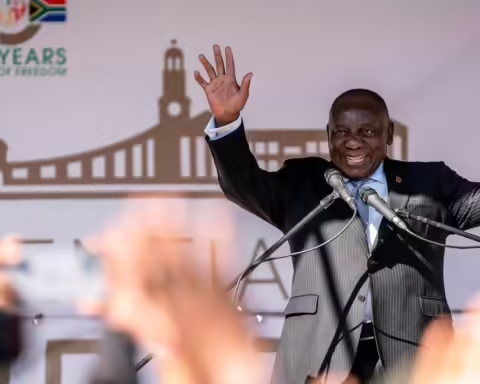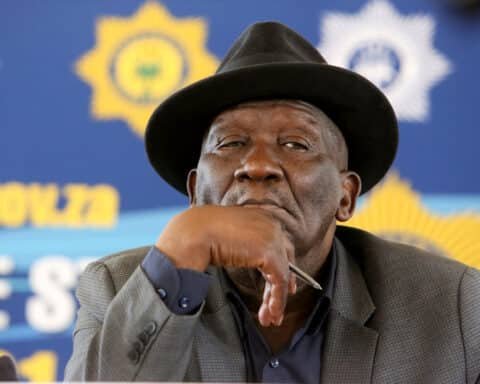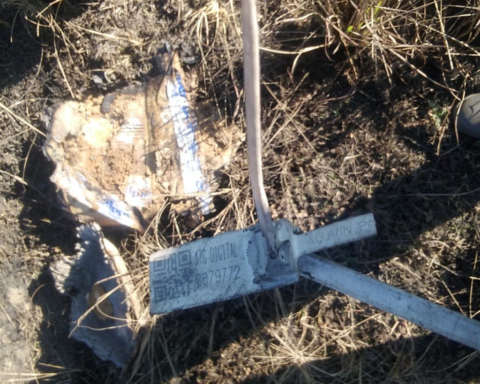Cold and fearful, scores of South Africans, mostly students, have spent nights at the Polish border desperate to flee war-torn Ukraine as tensions and violence escalated in the East European country.
In a WhatsApp group for African students in Ukraine, many shared harrowing ordeals of clashes and resistance from Ukrainian border personnel who are said to be helping their fellow citizens cross over to safety first before foreigners.
They encouraged each other to wear warm clothes ahead of the long hours and at times days spent at the borders leaving Ukraine, after Russia’s invasion of the country.
One student wrote in the group: “Don’t be shy, ask questions. Keep cash money and dollars if possible. Don’t overpack, you’re going to walk the walk of your lives. Guys don’t detach from yourselves, be each other’s protector. It is cold, dress extra warm. If you feel hot you can always tie the extra sweater around your waist.”
Kelebogile Ngwako, an SA student would managed to reach the Medyka border crossing between Poland and Ukraine, said Africans had been segregated from the Ukranians.
“We’re separated and Ukranians are treated better. We’ve been pushed, we’ve been shoved and denied access. Ukranians get special treatment while Africans are told to wait outside. It’s a mess,” Ngwako said.
Nigerian student Dominic Oru who managed to get into Romania corroborated Ngwako’s version of how Africans had been treated on the Ukranian side of borders.
Oru travelled with a group of friends from Ternopil to Romania in a four-hour drive.
“On the Ukrainian side of the border, they put the Ukrainians as priority one, Indians as priority two.
“Thankfully, the Romanian border was very fair and just,” he said.
Hayley Reichert, an SA expat based in London, is part of a group of three women helping citizens get out of the Ukraine safely.
Reichert works alongside Lorraine Blauw, a member of the Ukraine Crisis Evacuation Committee based in the Netherlands and Kim Kur who joined the group when President Cyril Ramaphosa closed SA airspace in 2020.
The three helped stranded South Africans to get back into the country.
“We have some South Africans in bunkers in Kyiv who can’t go anywhere and we also have some in Sumy, which is close to the border.
“If you draw a line from Kyiv in the north down to Odesa in the south, everything on the eastern side is almost difficult to travel,” Reichert said.
She said Ukrainian police had turned aggressive and were agitated when it came to assisting foreigners.
“Today, we’re asking all South Africans to go to Uzhhorod, near the Slovakian and Hungarian border and into the town centre and make themselves known to the Hungarian general consul. The general consul will assist them to cross,” she said.
Reichert added one of the students she was in constant communication with got injured at the Medyka border post after having walked hours to get there.
“We have two black female students from South Africa. One was injured after being trampled on at the Medyka border and both have bad blisters on their feet.
“The ambassador to Poland has arrived at the border but the only problem is to get hold of officials on the Ukraine side to allow the students through.
“The Romanian embassy has issued a letter for foreign nationals to cross but border control were not allowing South Africans through,” Reichert said.
She cautioned anyone going to Uzhhorod not to use private transport but to only take the train.
“We’re strongly encouraging them to go west, preferably to Uzhhorod or Lviv because of the situation along the Polish border,” Reichert said.
On Sunday, SA’s ambassador to the Ukraine, Andre Groenewald, said via text they were trying their best to protect all South African citizens.
Asked how many had been evacuated, how many remained and if he was safe, Groenewald responded from his basement: “In the cellar of the house now.”
Department of international relations and co-operation acting director-general Clayson Monyela tweeted that SA students and other Africans had been badly treated at the border between Ukraine and Poland.
He tweeted: “Amb [SA ambassador to Poland] J Mngomezulu has driven from Warsaw (5 hours) to go deal with the matter, receive our nationals & offer further support. Amb G Tsengiwe in Hungary is also attending to SANs on his side.”
Meanwhile, the SA International Students Association (Saisa), an international organisation founded and established in the Russian Federation by SA students, has called on the government to join youth formations in getting the youth out.
Saisa founder and chairperson Tumisang Maheso has written three letters to the government, urging it to come up with action plans to get students out of Ukraine.
“Students need help. We’ve tried to get the SA government to assist but they’ve given mediocre responses or told us to speak to Groenewald. We’re very concerned about how we’ve approached this because there’s only so much an ambassador can do. Groenewald is in the same WhatsApp group we’re in,” Maheso said.

